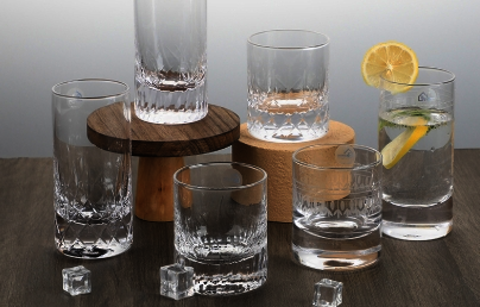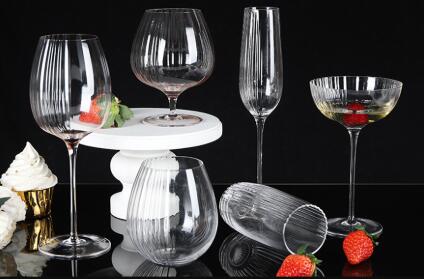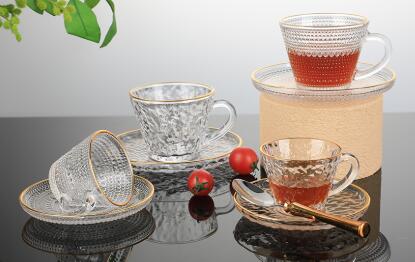How to Prevent Glass Cup Break Up
Pulished on May. 25, 2019The methods of preventing the breakage of glass tea are as follows:
The first is to buy products of better quality, which have the function of anti-explosion.
The second is to buy glass cup, which can be heated and boiled in water and then prevented from bursting.
Thirdly, do not fill the cup with hot water immediately when using in winter, but use a small amount of water temperature first and then use it to prevent the temperature difference from too big to cause the cracking. The reason for the cracking is that the temperature difference between inside and outside of the cup is too big, and the thin-walled cup with good quality is not easy to crack.
The glass bursts because the inner and outer walls are not uniformly heated and the pressure exceeds the strength of the cup. But if a small iron spoon is put into the cup and boiled water is added, the coefficient of thermal expansion can be indirectly reduced, and the glass will not burst.

Which glass material will be more heat-resistant?
Heat-resistant glass (refers to the special glass which contains boric acid and silicic acid with strong heat resistance and can withstand the change of temperature difference between cold and hot fusion). The coefficient of thermal expansion (the ratio of glass expansion caused by the increase of temperature) is relatively small, and it is not easy to break under the drastic change of temperature. It has a series of excellent properties such as low expansion, thermal shock resistance, high temperature resistance, corrosion resistance and high strength. The price of raw materials is higher than that of ordinary glass and the manufacturing cost is higher. Therefore, the selling price of heat-resistant glass is higher than that of ordinary glass and tempered glass. Heat-resistant glass material has a high safety factor and will never occur the self-explosion phenomenon similar to tempered glass. It has a small coefficient of thermal expansion, a wide range of rapid temperature change (> 120 C) and a heat-resistant temperature of 1200 C. Heat-resistant glass is mostly used in utensils, milk bottles, beakers for experiments, industrial boiler mirrors, mechanical equipment windows, etc.
Most heat-resistant glass containers are made of high borosilicate. High borosilicate glass (also known as hard glass) is a kind of glass melted by heating inside the glass at high temperature. It is processed by advanced production technology. Its linear thermal expansion coefficient is (3.3 s 0.1)x 10-6/K. It is also called "borosilicate glass 3.3". It is a special glass material with low expansion rate, high temperature resistance, high strength, high hardness, high transmittance and high chemical stability.

Related concepts
Glass cup is a kind of glass cup, and some of them are made of high borosilicate glass. It is fired at over 600 degrees. It is a new type of environmental protection tea cup, which is more and more popular.









